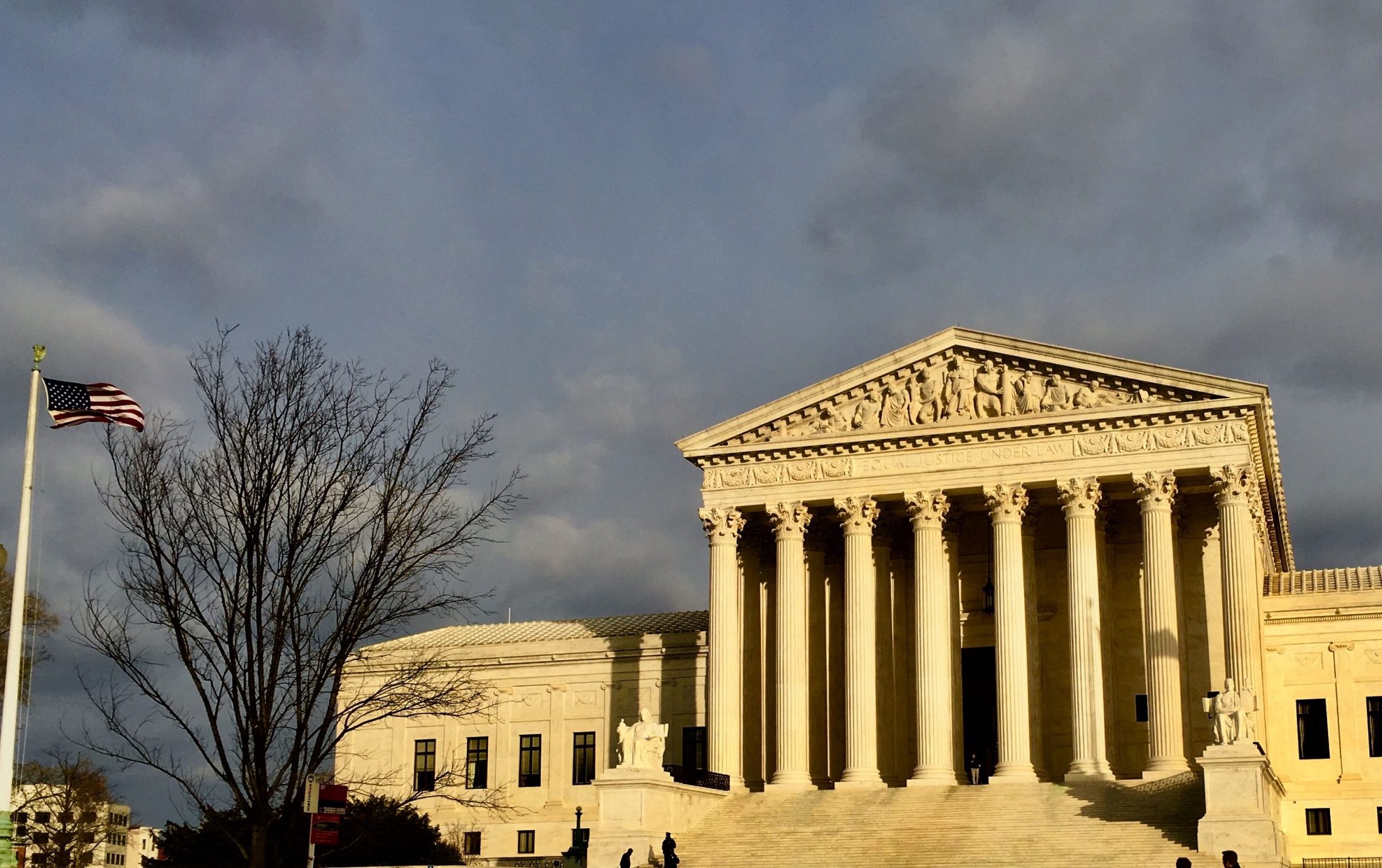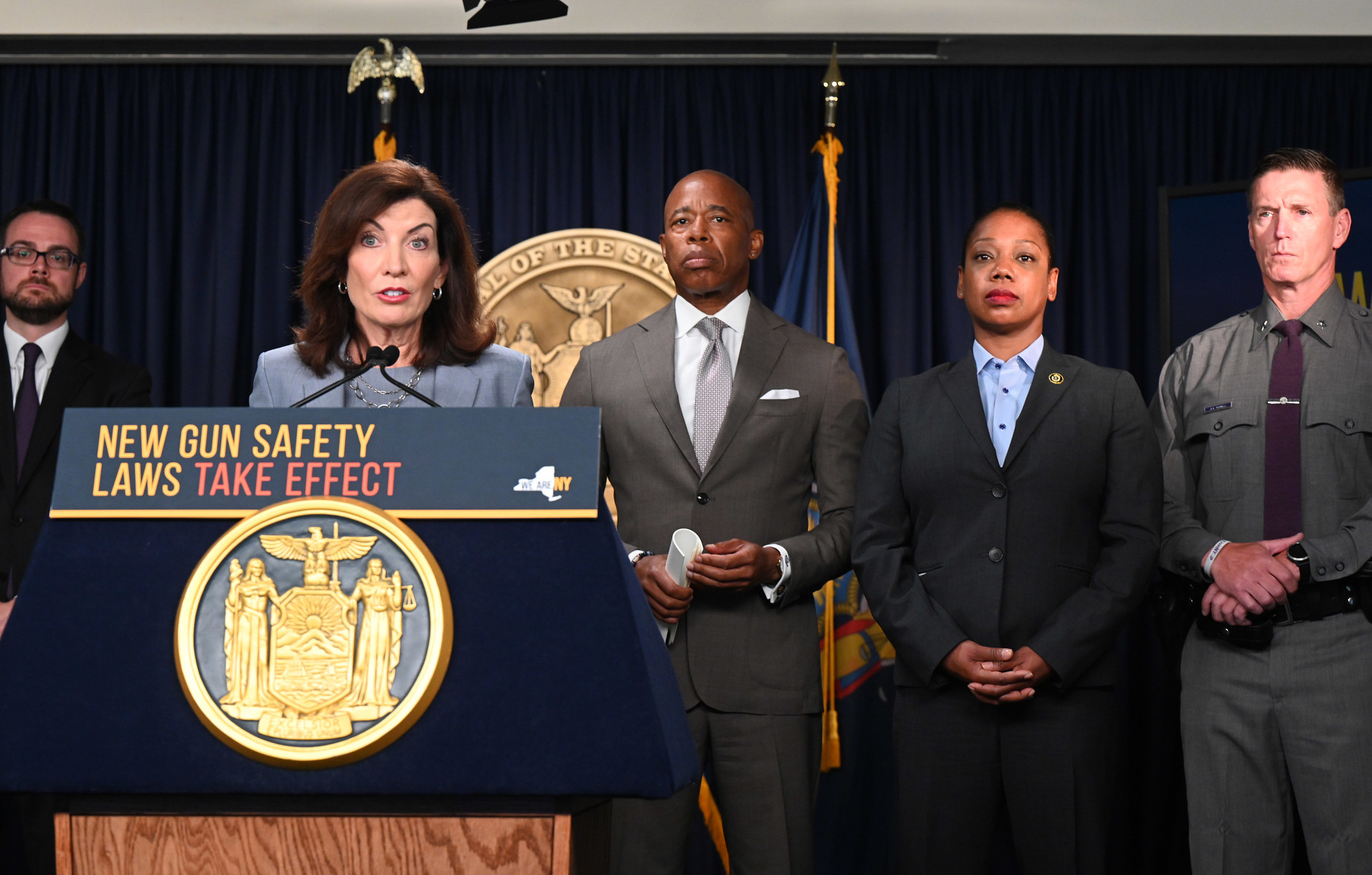Justices take up bid to overturn Oklahoma death sentence
SCOTUS NEWS
on Jan 22, 2024
at 10:43 am
The justices agreed to hear Glossip v. Oklahoma in a list of orders on Monday. (Guyyoung1966 via Wikimedia Commons)
Eight years after the Supreme Court blocked his execution so that it could consider a challenge to Oklahoma’s lethal-injection protocol, the justices agreed on Monday to take up the case of Richard Glossip, who is seeking to set aside his conviction and death sentence. In an unusual twist, Oklahoma Attorney General Gentner Drummond supported Glossip’s petition for review, telling the court that “justice would not be served by moving forward with a capital sentence that the State can no longer defend because of prosecutorial misconduct and cumulative error.”
Glossip was sentenced to death for the 1997 murder of Barry Van Treese, the owner of the Oklahoma City motel where Glossip worked as a manager. The only evidence implicating Glossip in Van Treese’s death was testimony from Justin Sneed, a handyman at the hotel, who told jurors that Glossip paid him $10,000 to kill Van Treese. In exchange for his testimony, prosecutors assured Sneed that he would be spared the death penalty.
Glossip asked an Oklahoma court to set aside his conviction and sentence last year. He said that in January 2023 he had received new information, including prosecutors’ notes, indicating that Sneed had testified falsely about whether he had seen a psychiatrist when he had in fact been treated for bipolar disorder and prescribed lithium.
Drummond appointed Rex Duncan, a former district attorney in Oklahoma, as an independent counsel to review Glossip’s case. In April 2023, Duncan reported that he believed a new trial was necessary because “Glossip was deprived of a fair trial in which the State can have confidence in the process and result.”
Based on Duncan’s report, Drummond joined Glossip in asking the Oklahoma Court of Criminal Appeals, the state’s highest court for criminal cases, to set aside Glossip’s conviction, but the court rejected that request. Less than a week later, the state’s Pardon and Parole Board turned down Glossip’s request for clemency, which the attorney general – apparently for the first time in the state’s history – had also supported.
With his execution scheduled for May 18, 2023, Glossip came to the Supreme Court, asking the justices – with Drummond’s support – to put his execution on hold to give them more time to consider his appeals. In a brief, unsigned order in early May, the justices agreed to do so.
After considering Glossip’s appeals at 11 consecutive conferences, the justices agreed to decide whether the state violated Glossip’s constitutional rights when prosecutors suppressed evidence that their key witness was under a psychiatrist’s care. The court did not act on a second petition that Glossip had filed, and which the state had opposed, involving whether the burden that Oklahoma courts imposed on Glossip to show that he was harmed by the state’s suppression of evidence that might have cleared him was too high.
The justices also directed Glossip and the state to address a separate question: whether the ruling by the Oklahoma Court of Criminal Appeals rested on an “adequate and independent state-law” ground (specifically, that Glossip was not entitled to relief under state post-conviction law), which the Supreme Court would lack the power to review.
Justice Neil Gorsuch did not participate in the consideration of Glossip’s request, presumably because he had weighed in on one of Glossip’s earlier appeals when he served as a judge on the U.S. Court of Appeals for the 10th Circuit. He did not indicate if he will recuse himself from the case going forward.
The justices added another case to their merits docket on Monday, setting the latest chapter in a dispute over the waters of the Rio Grande River “for oral argument in due course.” The case began a decade ago as an action by Texas against New Mexico, alleging that New Mexico had violated a 1938 agreement to divide the river’s waters among Texas, New Mexico, and Colorado.
In 2022, Texas and New Mexico reached a settlement, and an expert appointed by the court recommended that it be approved. But the federal government, which had joined the lawsuit, objected to the settlement, and now the justices will weigh in.
The court once again did not act on several of the high-profile petitions that it considered last week, including a request by parents and alumni to review the constitutionality of the admissions policy of a prestigious public magnet school in the Washington, D.C., suburbs and a pair of challenges to the constitutionality of New York’s rent-stabilization system. The justices first considered the New York rent-stabilization cases, 74 Pinehurst v. New York and 335-7 LLC v. New York, at their conference on Sept. 26, 2023 – the same conference at which the justices considered Richard Glossip’s petition for review for the first time.
The justices are now in their four-week winter recess. Their next regularly scheduled conference is Friday, Feb. 16.
This article was originally published at Howe on the Court.






